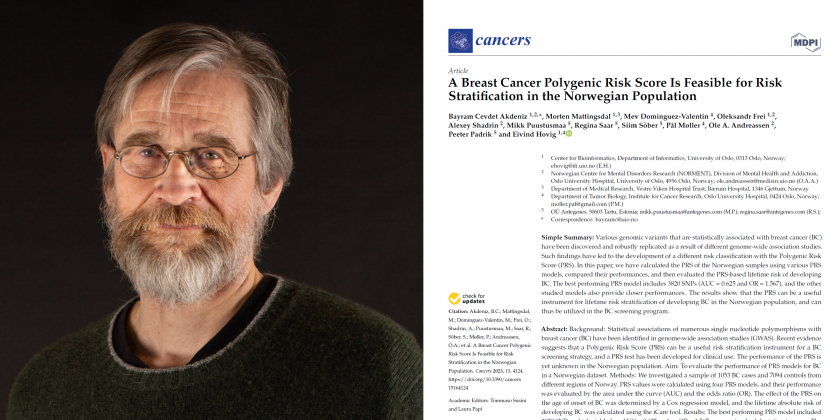New research on genetic risk and breast cancer
How a simple saliva test can reveal the risk of breast cancer in the Norwegian population.
A study by the University of Oslo, Oslo University Hospital and OÜ Antegenes looking into Polygenic Risk Scores (PRS) and breast cancer in Norway was recently published in the journal MDPI Cancer. PRS technology is a type of genetic test that can reveal an individual’s risk of developing cancer.
“The study was initiated to assess the possibility of using a combination of genetic markers for a given woman here in Norway to predict the risk of developing breast cancer over her life,” said Eivind Hovig, Professor at the Department of Bioinformatics at the University of Oslo, and one of the co-authors to the article.
Early detection
Every year, there are close to 4 200 new breast cancer cases and almost 600 deaths from breast cancer in Norway, according to reports from the Norwegian Cancer Registry. Early detection is crucial for survival, but almost 40 per cent of breast cancer cases are not diagnosed at an early stage.
“The results indeed indicate that it is entirely feasible to apply such a predictor meaningfully in a Norwegian context,” said Hovig.
Personalised screening
Current breast cancer screening in Norway is implemented for women at age 50-69, but approximately 20 per cent of breast cancer cases are diagnosed in younger women. These tests can potentially be used to identify younger women with a higher risk and lead to a more personalised screening approach.
“As the application of such a predictor may have implications for management of patients with high risk scores, it may lead to different screening strategies and a better understanding of the risk profiles of these patients,” added Hovig.
The PRS test used in the study was developed by the Estonian company Antegenes. The study was conducted as a part of AnteNOR, a project that investigates how PRS can be implemented for prevention and early detection of breast cancer in Norway.












 Surviva
Surviva